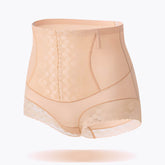Understanding and Managing Vaginal Odor: Causes, Solutions, and Prevention

Every woman has an intimate vaginal odor, and that's completely normal. However, there are times when an unusual and unpleasant vaginal odor makes its appearance. This often indicates a gynecological infection. Where do these odors come from? What should you do when your vagina smells bad or your vaginal discharge is foul-smelling? We'll explain it all.
What is the "Normal" Smell of a Vagina?
Every vagina is different and has its own unique odor. This intimate odor, often slightly acidic, varies among individuals and also during different menstrual cycle phases. For example, it may be stronger during menstruation or ovulation when vaginal secretions are more abundant. The secretion of vaginal fluids, known as "cyprine," produced by our bodies during sexual arousal, can also alter our vaginal odor.
However, it's important to note that a vagina is not supposed to smell bad. A strong vaginal odor is generally a sign of a gynecological infection and requires medical consultation.
Why Does My Vagina Smell Bad?
The vagina contains billions of lactic acid bacteria called lactobacilli, forming the intimate flora or vaginal microbiota. Their purpose is to protect the vagina from infections by maintaining a slightly acidic pH, which is not favored by fungi and harmful bacteria. However, it can happen that this vaginal flora gets imbalanced, leading to gynecological infections and a strong, unpleasant intimate odor.
Yeast-like Odor in the Case of a Yeast Infection
In the case of a vaginal yeast infection, caused by a fungus called Candida albicans, the vagina usually has an odor reminiscent of sugar or yeast.
Fishy Vaginal Odor in the Case of BV
Bacterial vaginosis, on the other hand, produces odors resembling not-fresh fish (or even rotten fish) or ammonia. This infection is caused by the bacterium Gardnerella vaginalis, which releases gases into the vagina. This rotten fish odor intensifies after sexual intercourse or during menstruation, especially when in contact with semen and blood.
Causes of a Bad Intimate Odor
Imbalance in intimate flora can be caused by several factors:
-
Taking antibiotic medications
-
Practicing vaginal douching
-
Wearing excessively tight underwear causing friction and moisture around the vulva. Opt for cotton underwear, including organic cotton menstrual lingerie.
-
Using scented shower gels.
-
Inserting a copper IUD
-
Poor lifestyle hygiene, including excessive alcohol and tobacco consumption
-
Stress
-
Some sexually transmitted infections (STIs) with foul-smelling discharge
Note that certain STIs like trichomoniasis can also be responsible for a bad vaginal odor with ammonia-like odors. These unpleasant odors often accompany abnormal vaginal discharges, which are typically brown or yellowish.
Poor Intimate Hygiene
The accumulation of smegma around the lips of your vulva can also cause a bad intimate odor. Its odor resembles that of curdled milk or cheese, with a cheesy consistency.
The Special Case of Menstruation
Many women notice that their vaginal odor is stronger during their periods, and that's perfectly normal. The presence of menstrual blood can generate intimate odors of iron or metallic scents. Additionally, bacteria responsible for bad odors thrive on blood and hair, easily proliferating around the vulva and vagina during menstruation.
Also, the blood stagnating in menstrual protection items (tampons, sanitary napkins, menstrual panties, panty liners) can cause bad odors. That's why it's important to regularly change your period protection.
What to Do in Case of Bad Vaginal Odor?
If you notice an abnormal odor in your vagina, the first step is to talk to your gynecologist, midwife, or general practitioner, as you may potentially have a gynecological infection that requires treatment.
Depending on the cause of your bad vaginal odor, various treatments may be suggested:
-
Antifungal treatment if it's a yeast infection
-
Oral antibiotics or vaginal suppositories to treat bacterial vaginosis or trichomoniasis
-
In the case of a sexually transmitted disease, your sexual partners may also need treatment
How to Prevent Bad Vaginal Odors
You can protect your flora and reduce the risk of developing bad vaginal odors by following these recommendations:
-
Completely avoid vaginal douching. Nature has designed the vagina to be self-cleaning. Trying to cleanse it with a stream of water is the best way to cause a vaginal infection.
-
Cleanse the vulva with an intimate cleansing gel with a pH suitable for your vaginal flora rather than using harsh shower gels and soaps that are too aggressive for lactobacilli. Gently perform your intimate hygiene to avoid irritating your skin and mucous membranes.
-
Never use vaginal deodorants and fragrances (yes, they exist!).
-
Use organic cotton hygiene products without chemical additives to limit irritations and infections.
-
Wear breathable cotton underwear rather than synthetic materials, and avoid tight thongs and pants.
-
Maintain a healthy lifestyle by adopting a balanced diet and limiting your intake of sugar, alcohol, and tobacco.
-
Engage in regular physical activity to manage stress.
-
Limit shaving and complete intimate hair removal; it's better to completely avoid complete hair removal as hair serves as a natural barrier against infections.
-
Improve the balance of your vaginal flora with probiotics—these can be tablets or suppositories containing beneficial bacteria for your vaginal microbiota.
What About Grandma's Remedies for Bad Odors?
Among the natural remedies found online, some natural solutions may be suitable for bacterial vaginosis. However, always consult a healthcare professional before trying any natural treatment, as antibiotic treatment is often necessary.
-
Dietary consumption of garlic, which is a natural antifungal and antibacterial. Don't put garlic in your vagina, as it may cause an infection if not properly cleaned. You can also cut 1 to 2 cloves into pieces and soak them in a glass of water overnight. In the morning, you'll have a macerate to drink. Admittedly, it doesn't sound appealing.
-
Organic and unpasteurized apple cider vinegar, as it is produced through fermentation and is naturally rich in probiotics. It could help restore the physiological acidic pH of the vulva. It is recommended to dab it on the vulva (we're really not sure about this grandma's solution...)
Yogurt in Dietary Consumption
It regulates intestinal and vaginal flora. It can be recommended for local application, but it's still much better to use real vaginal probiotics to avoid bacterial complications.
Explore Okay Trendy's Exclusive Collection of High-Quality Plus Size Panties!
At Okay Trendy, we specialize in providing high-quality plus size panties that combine comfort and style seamlessly. Our latest recommendation for a flattering fit is the high waist panties. The high waist slip is designed to create a sleek silhouette while offering maximum comfort. Crafted from extra soft cotton, these high waist panties provide gentle support.
The waistband extends to the waist, the side parts are generously cut, and the coverage extends to almost the entire buttocks. Not only do these high waist briefs offer exceptional comfort, but they also cleverly conceal minor imperfections. Ideal for figure-hugging dresses, narrow skirts, and high-waisted pants or jeans, our high waist briefs ensure you feel confident and comfortable throughout the day.
Discover the perfect blend of style and functionality with Okay Trendy's high waist panties. Embrace your curves and feel comfortable in your own skin with Okay Trendy – where fashion meets confidence!



























